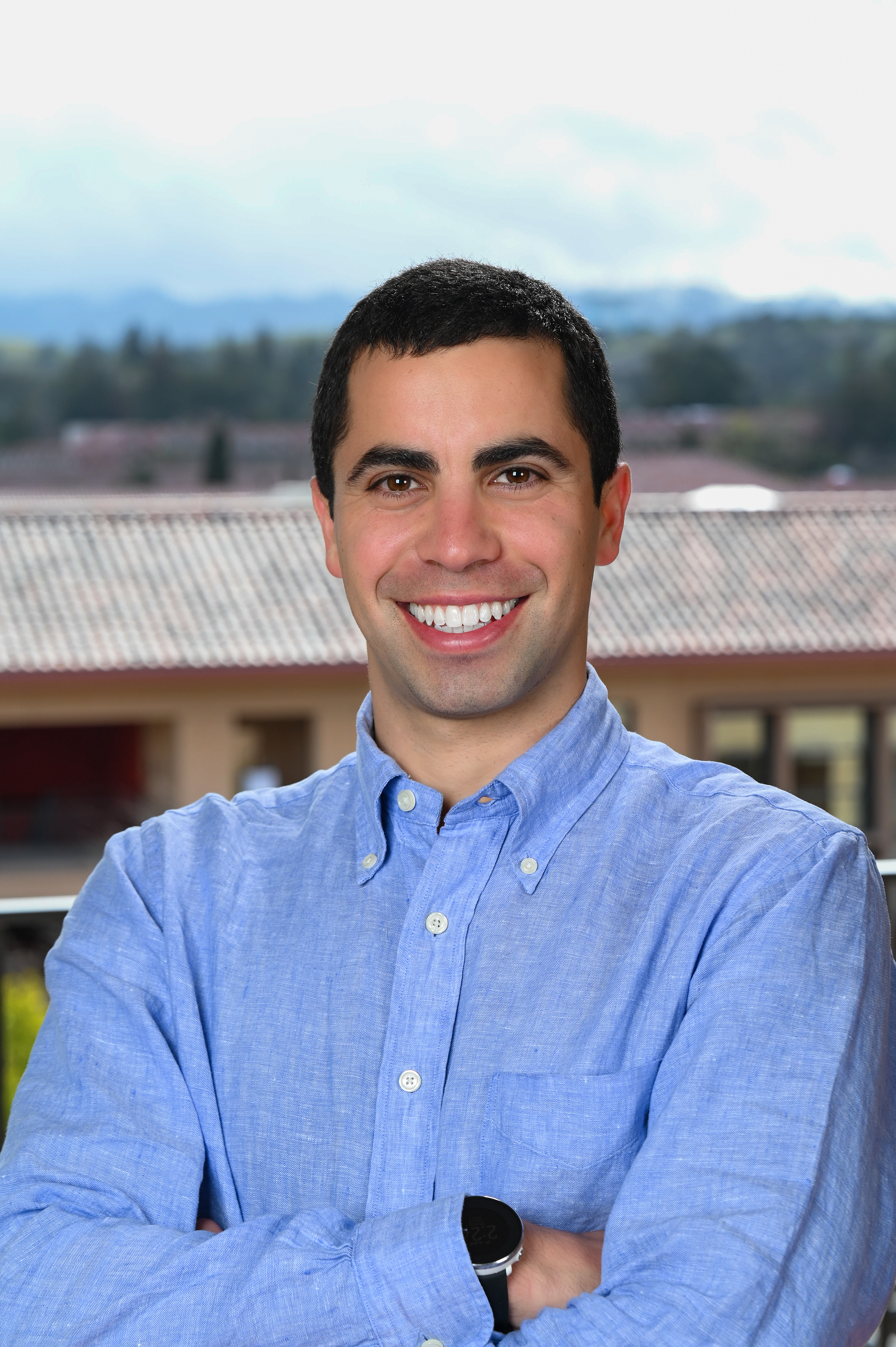Joby Bernstein is not a seasoned politician, but the Palo Alto resident believes his energy, enthusiasm and passion for investing and tackling climate change will serve him well in his next venture: running for the Congressional seat currently occupied by Anna Eshoo.
Even before Rep. Eshoo announced last week that she will not seek another term, triggering a cascade of political speculation, Bernstein has been preparing to run for her District 16 seat. He has been talking to people around the Silicon Valley district, which includes the Midpeninsula area as well as portions of the South Bay and San Mateo County, and he has raised about $30,000 for the campaign, he said in an interview.
As a 28-year-old student at Stanford University, he doesn't have the name recognition enjoyed by veteran policymakers who have either entered the field or are expected to do so in the coming weeks. These include Santa Clara County Supervisor Joe Simitian, who announced his run on Wednesday, as well as former San Jose Mayor Sam Liccardo and state Assemblyman Evan Low, both of whom are expected to officially launch their bids soon.
But Bernstein doesn't see this as a problem. An avid outdoorsman who likes to bike, backpack and run the trails, he says he has been alarmed by the damage that climate change has brought, including fires, floods and droughts. The problem needs to be addressed urgently, within the next five to 10 years. As such, he is not inclined to spend years in local and state politics before making his bid for Washington, D.C.
After stints at several climate funds, where he was mainly involved in research, he wants to bring his enthusiasm for innovation to the realm of politics.
"Climate change is an issue that I was naïve enough for a while to think that I could address on the investing and advising side," Bernstein said in an interview. "But it won't scale enough when compared to what policy can do."
Bernstein, who is currently pursuing master's degrees in business and in environmental resources at Stanford University, said his main campaign priorities will be climate change, education and immigration. This includes enhancing America's primary education and vocational schools. It also includes working on comprehensive immigration reform to make it easier for foreign-born workers to pursue the American Dream while contributing to Silicon Valley companies, he said.
A native of Westchester County in New York, Bernstein moved to California six years ago. He highlighted his prior work in public policy, including conducting research for Republican politicians in Utah and Ohio, including an internship for the recently retired Sen. Rob Portman, R-Ohio. While Bernstein is himself a Democrat, he said he believes there are people across the political aisle with whom he could find common ground on topics like energy efficiency and grid resilience, which are central to his climate-change platform.
He also said that he wants to bring Silicon Valley's innovation culture to Washington, D.C. The district has seen a significant transformation since Eshoo came into office three decades ago.
"It is unreal what has taken place in Silicon Valley over those 30 years," Bernstein said. "It is unmatched in the history of the world the amount of technology innovation and wealth created here.
"We need someone who will innovate. I want to be as innovative and willing to change the game in D.C. as young people have been in this district," Bernstein said.



Comments
Registered user
Old Mountain View
on Dec 1, 2023 at 7:33 pm
Registered user
on Dec 1, 2023 at 7:33 pm
Let's ensure that all candidates for Eshoo's seat receive fair consideration. We shouldn't automatically assume there's an heir apparent. While Smitian has been in the political scene for an extended period, it's essential to question what new ideas he can bring to the table.
Registered user
Willowgate
on Dec 2, 2023 at 12:02 am
Registered user
on Dec 2, 2023 at 12:02 am
Cities and developers need to consider protection and restoration of noise and air pollution barriers known as highway vegetation barriers or HVBs. I am a bit frustrated in the lack of responsiveness and acknowledgement of the importance of integrating these natural resources into the project plan designs during the early phases of the planning by developers and their early engagement with the community. Has there been any progress at the State and local levels to preserve and rehabilitate existing natural highway tree barriers from destruction by housing developments on public and private lands. These barriers act as noise buffers and air pollution barriers that protect the public health of thousands of residents. The BIL and IRA do not sound like environmental legislation, but along with CCB, the BIL and IRA, are the nation's biggest environmental legislation in a generation. The CCB, BIL, and IRA will unleash more than $1 trillion dollars in federal funding to ramp up electric cars, solar energy, wind energy, and transform our cities. Billions are directed to be spent directly on nature-restoring ecosystems, preserving biodiversity, battling invasive species, tackling drought and sea level rise. These colonies of trees are natural resources and ecosystems these laws are meant to protect and restore for the health of the community and the planet. This is why the City Council, the developer, and the community need to collaborate on a solution. One practical solutuon: In lieu of the requirement to deed land for a small public park to the city to build, care, and maintain, the city could exchange the land earmarked for a public park to the HVB to restore, care, and maintain. A community youth conservation corps could be formed to restore the barrier and other urban forestry. These aforementioned laws are the new changes and impetus, that may have not existed when the developer drew their plans, for making these concessions. Please join me to save HVBs.